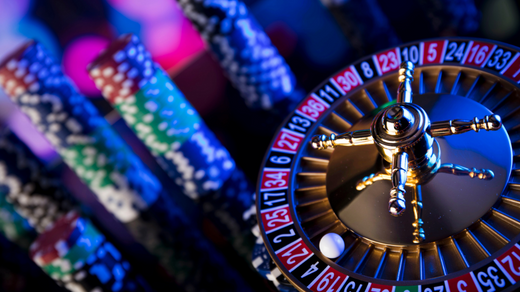In the high-stakes, adrenaline-pumping world of poker, players often seek any edge they can get to tilt the odds in their favor. This quest for an advantage sometimes leads to the development of superstitions and beliefs that have been passed down through generations of card players. But how much of this folklore holds any truth, and what is merely a myth? In this article, we’ll delve into the intriguing world of poker superstitions and separate fact from fiction.
The Lucky Charm
Fact or Fiction: Fact
Many Poker players believe in the power of a lucky charm. Whether it’s a rabbit’s foot, a cherished coin, or a specific article of clothing, these talismans are thought to bring good fortune at the poker table. While there’s no scientific basis for these beliefs, the placebo effect can be a powerful psychological tool. If a player genuinely believes their lucky charm will help them win, it may boost their confidence and performance.
The Unlucky Seat
Fact or Fiction: Fiction
Some players adamantly avoid certain seats at the poker table, convinced that they are “unlucky.” This belief has no basis in reality, as poker outcomes are determined by the cards, player decisions, and chance. The idea that a particular seat is inherently unlucky is purely superstitious and lacks any factual foundation.
Shuffling Rituals
Fact or Fiction: Fiction
You might have seen players engage in elaborate shuffling rituals, such as the “wash” shuffle or the “riffle” shuffle, believing that it will somehow improve their card luck. In reality, these actions have no influence on the order of the cards or the outcome of the game. Professional dealers are trained to shuffle in specific ways to ensure fairness, and their techniques are based on statistical randomness rather than superstition.
Lucky Numbers and Suits
Fact or Fiction: Fiction
Some players prefer certain numbers or suits, believing that they are luckier than others. For example, a player might always bet on the number 7 or favor hearts over spades. These preferences are entirely subjective and have no impact on the game. The cards are shuffled randomly, and their distribution is a matter of chance, not numerical or suit-based patterns.
The “Curse” of Winning Streaks
Fact or Fiction: Fiction
In poker, it’s not uncommon for players to worry about a “curse” that follows a winning streak. They might fear that a string of victories will be followed by a prolonged losing streak. This belief is a classic example of the gambler’s fallacy—the mistaken idea that past outcomes influence future results. In reality, each hand of poker is an independent event, and previous wins or losses do not affect the probabilities of future outcomes.
Wearing Red for Luck
Fact or Fiction: Fiction
In some cultures, the color red is associated with good luck and prosperity. While it’s not uncommon to see poker players wearing red clothing or accessories, there’s no empirical evidence to support the idea that the color red has any influence on poker outcomes. The outcome of a poker hand is determined by the cards and the players’ decisions, not the color of their clothing.
The “Poker Face”
Fact or Fiction: Fact
While not exactly a superstition, the concept of the “poker face” holds a significant element of truth. A poker face refers to a player’s ability to conceal their emotions and intentions, making it difficult for opponents to read their hand. Maintaining a stoic and unreadable expression is a valuable skill in poker, as it can influence opponents’ decisions and give a player an advantage.
Lucky Rituals
Fact or Fiction: Varies
Some players have personal rituals they perform before or during a poker game, such as tapping the table a certain number of times or stacking chips in a specific way. While these rituals may provide a sense of comfort or routine, their actual impact on the game is subjective. Some players find that these rituals help them focus and relax, while others dismiss them as mere superstition.
In conclusion, the world of poker is rife with superstitions and myths, some of which hold a kernel of truth, while others are purely the product of superstition and belief. While these rituals and beliefs can be entertaining and add an extra layer of intrigue to the game, it’s essential for players to recognize that poker outcomes are primarily determined by skill, strategy, and chance.
Ultimately, whether you believe in lucky charms, seat superstitions, or lucky numbers, it’s essential to approach the game of poker with a solid understanding of its rules and strategies. While superstitions may add a bit of fun and mystique to the game, it’s the mastery of the fundamentals that truly separates successful poker players from the rest. So, the next time you’re at the poker table, feel free to embrace your superstitions for fun, but remember that your skills and decisions will ultimately determine your success.




